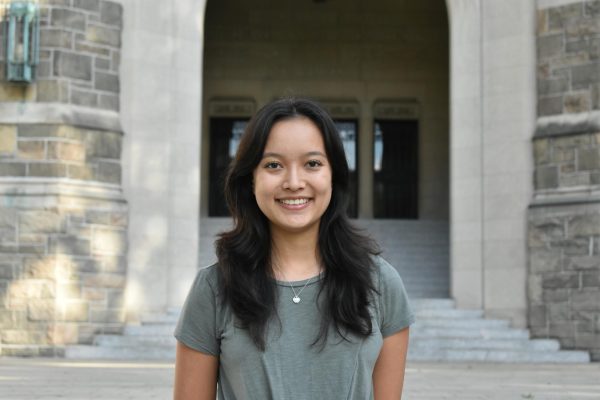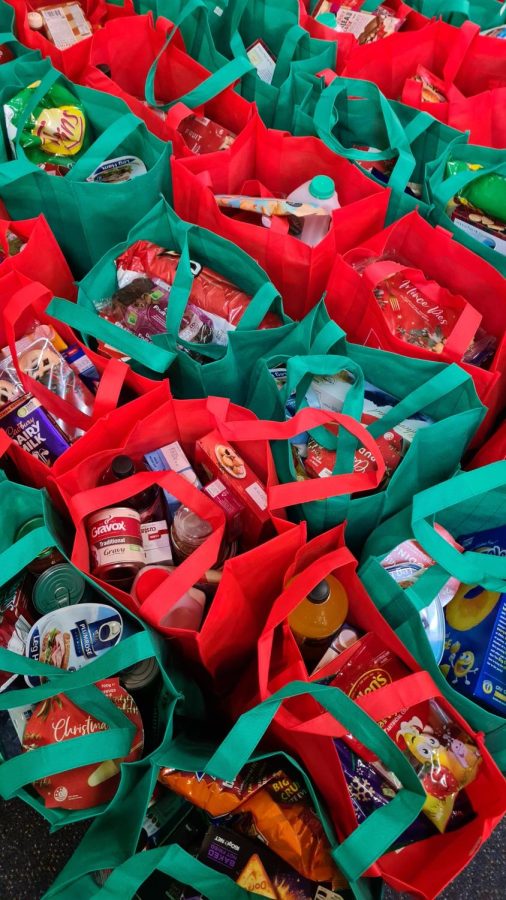Center for Community and Engaged Learning Hosts Thanksgiving Food Drive
The Center for Community Engaged Learning (CCEL) is holding its Thanksgiving Food Drive from Nov. 8 to Nov. 19. The initiative is part of a Global Outreach (GO!) project spanning both the Rose Hill and Lincoln Center campuses this semester.
“This one is called the Bronx Immigration Project,” explained GO! project leader Emma Dileas, FCLC ’23. “We are partnering with the Violence Intervention Program (VIP). It is helping women of color and mostly immigrants escape domestic violence. We just had a clothing drive, and we are having a food drive now. We are also doing a toy drive the week after Thanksgiving.”
Students can bring their donations to McGinley 205 at Rose Hill or Lowenstein 217B at Lincoln Center, which are both the CCEL offices. Packaged food and nonperishable food items are being accepted.
In addition to nonperishable food items, monetary donations can also be directed to Dileas. “We are going to take a day to purchase food with the monetary donations,” Dileas explained.
“One responsibility we have is to give back to the community that surrounds and supports Fordham,” said Dileas. “Donating a couple cans of food or bags of rice is really important to connect to the community that we are a part of and that supports us.”
During the pandemic, food insecurity, which has long been a prevalent issue in New York, worsened.
The United States Department of Agriculture defines food insecurity as “a lack of consistent access to enough food for an active, healthy lifestyle.”
According to City Harvest, New York’s largest food rescue organization, there was a 38% increase in food insecurity compared to pre-pandemic figures. With the increase, over 1.5 million New Yorkers are struggling with food insecurity.
In addition, there are disparities in food insecurity among different races and ethnicities. In March 2021, 29% of Hispanic New Yorkers and 20% of Black New Yorkers reported food scarcity, which is four to six times higher than white New Yorkers. Further, 1 in 5 households with children also reported food insecurity, with higher numbers also in different races and ethnicities.
A report by the Center for an Urban Future (CUF) in June of 2020 also found that many immigrants who had a loss of income due to the pandemic subsequently struggled with food insecurity. Multiple immigrant organizations reported that up to 75% of their clients were going hungry, according to CUF.
While numbers are starting to go down after the beginning of the pandemic, food insecurity is still present in the city.
The Bronx especially faces food insecurity. According to Feeding America, 17.5% of all people and 23.5% of all children living in the Bronx suffered from food insecurity in 2018, which is the highest rate across the five boroughs. During the pandemic, the reduction or closure of emergency food pantries worsened the situation.
Parts of the Bronx are also considered food deserts, which are defined as geographic areas where residents’ access to affordable, healthy food options (especially fresh fruits and vegetables) is restricted or nonexistent due to the absence of grocery stores within convenient traveling distance.
Because of the lack of grocery stores, people often turn to bodegas, which are usually more expensive. Since there is a lack of access to healthy foods, people living in these food deserts face health problems as a result.
This year’s Thanksgiving Food Drive aims to help the women and families within the VIP network. These people will be receiving a set bag of food, according to Dileas.
“We are hoping to have enough for 10 to 15 families but really anything that someone can donate is welcome,” Dileas told the Ram.

Emma Kim is a junior from Pittsburgh. She is double majoring in economics and English. She started as a contributing writer for news in her freshman year...







































































































































































































